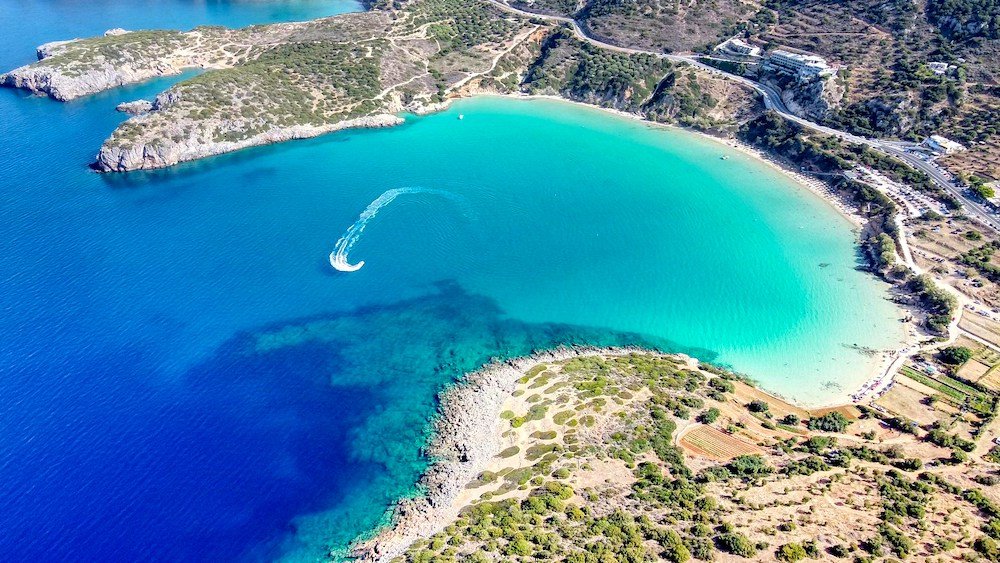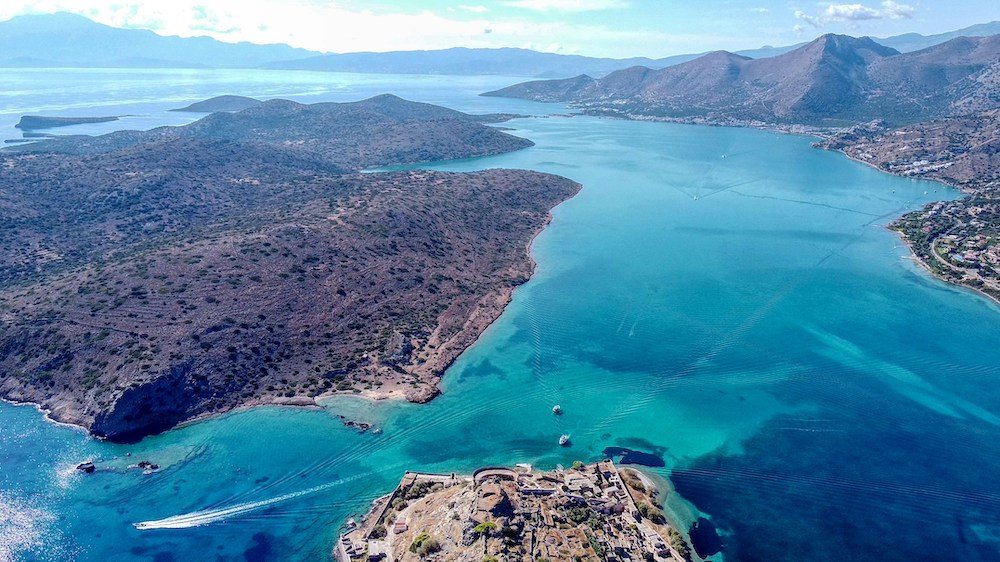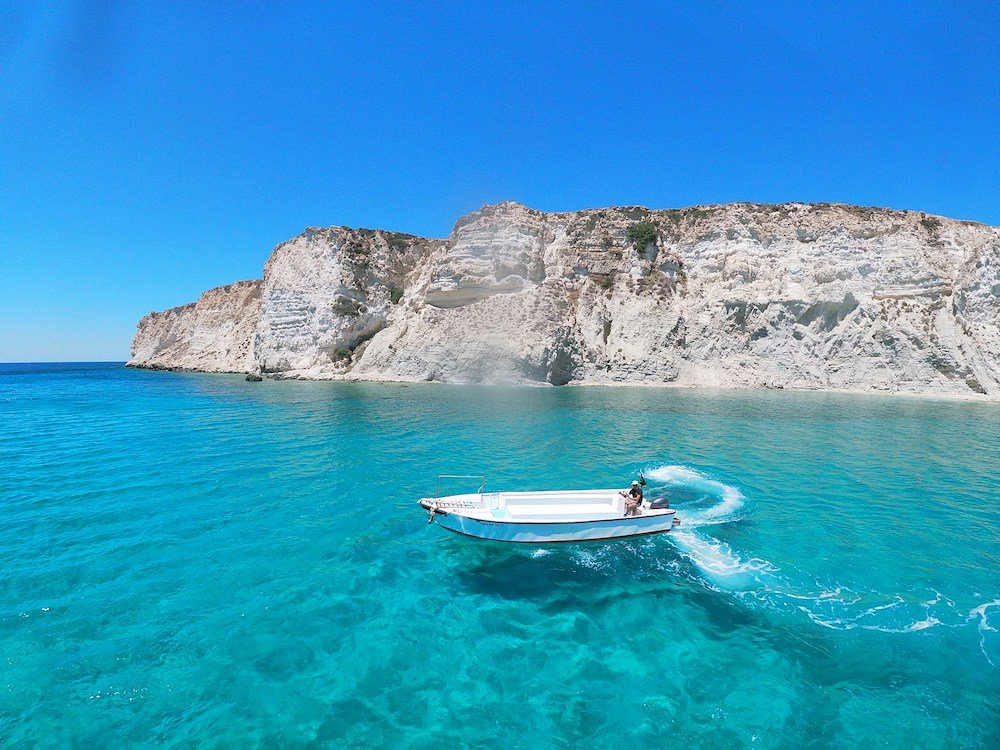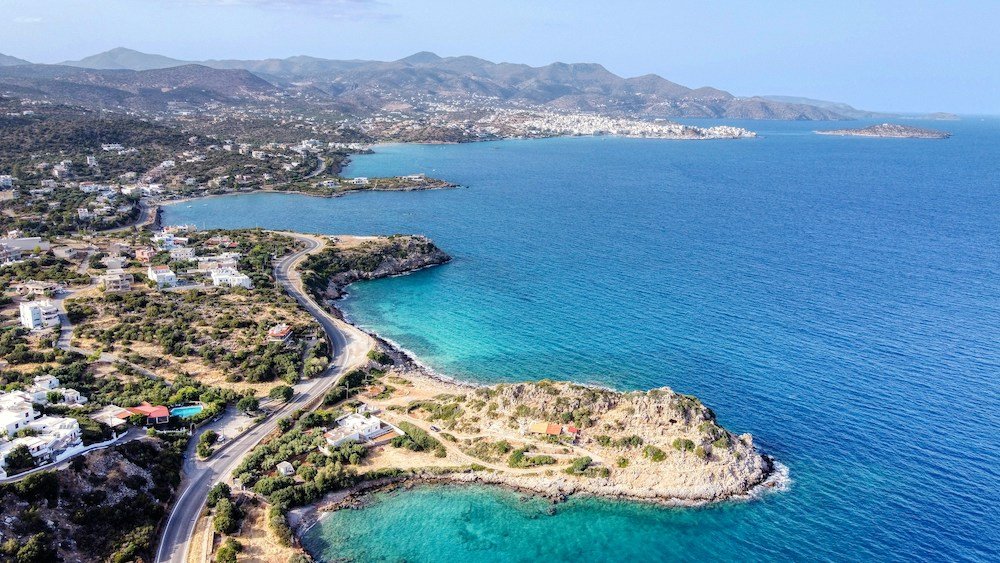
The Aegean Islands, scattered like jewels across the Aegean Sea, hold a magnetic allure for travelers seeking a blend of history, culture, and natural beauty.
Encompassing over 6,000 islands and islets, the Aegean archipelago forms a tapestry of diverse landscapes, each island offering its own unique charm and character.
Nestled between mainland Greece and the coast of Turkey, the Aegean Sea boasts a rich historical legacy dating back to ancient times.
Its crystalline waters and sun-drenched shores have inspired poets, artists, and explorers for millennia.
The Aegean region is renowned for its mild Mediterranean climate, characterized by hot, dry summers and mild winters, making it an idyllic year-round destination for travelers.
The Aegean Islands hold a profound significance in both historical and cultural contexts.
These islands were once home to ancient civilizations, including the Minoans, Mycenaeans, and Classical Greeks, whose legacies endure in the form of majestic ruins, temples, and artifacts scattered throughout the archipelago.
Today, the Aegean Islands beckon travelers with their picturesque villages, sun-kissed beaches, and azure waters.
From the vibrant nightlife of Mykonos to the tranquil landscapes of Santorini, each island offers a distinct experience, promising unforgettable moments of exploration and relaxation.
The allure of the Aegean Islands lies not only in their natural beauty but also in their rich tapestry of traditions, culinary delights, and warm hospitality.
Whether you seek adventure, romance, or simply a peaceful retreat, the Aegean Islands welcome you to embark on a journey of discovery amidst the splendor of the Mediterranean.
Geography and Location

The geographical allure of the Aegean Islands extends far beyond their stunning vistas, encompassing a rich tapestry of landscapes, seascapes, and cultural heritage.
The Aegean Sea, cradled between the eastern Mediterranean and the western coast of Turkey, is a vast expanse of shimmering blue waters dotted with islands of unparalleled beauty.
Spanning approximately 214,000 square kilometers, the Aegean Sea serves as the backdrop for a myriad of maritime adventures, from leisurely cruises to exhilarating water sports.
Distribution and Grouping of the Aegean Islands
The Aegean archipelago is divided into several distinct island groups, each characterized by its own unique topography and cultural identity. Among the most prominent island clusters are:
- Cyclades: Situated in the heart of the Aegean Sea, the Cyclades comprise a collection of approximately 220 islands, including popular destinations such as Mykonos, Santorini, and Paros. Known for their whitewashed villages, windmill-dotted landscapes, and vibrant nightlife, the Cyclades offer a quintessential Greek island experience.
- Dodecanese: Located near the southeastern coast of Greece, the Dodecanese Islands form an enchanting mosaic of history and natural beauty. From the medieval charm of Rhodes to the secluded beaches of Karpathos, each island in the Dodecanese beckons travelers with its own distinct allure and cultural heritage.
- Sporades: Nestled off the eastern coast of mainland Greece, the Sporades Islands boast lush green landscapes, crystalline waters, and unspoiled natural beauty. Skiathos, Skopelos, and Alonnisos are among the most renowned islands in the Sporades archipelago, offering idyllic retreats for nature lovers and sun-seekers alike.
Notable Islands in the Aegean Archipelago
While the Aegean archipelago comprises thousands of islands and islets, several stand out as perennial favorites among travelers:
- Santorini: Renowned for its breathtaking sunsets, volcanic landscapes, and iconic whitewashed buildings perched atop sheer cliffs, Santorini epitomizes the quintessential Greek island paradise.
- Mykonos: A playground for the jet set, Mykonos beckons visitors with its cosmopolitan ambiance, lively beaches, and vibrant nightlife scene.
- Crete: The largest and most populous of the Greek islands, Crete boasts a rich tapestry of history, culture, and natural beauty, from ancient Minoan ruins to rugged mountain ranges and pristine beaches.
History and Culture

The Aegean Islands have been integral to the tapestry of human history for millennia, serving as crossroads of civilizations and cradles of culture.
From the ancient Minoans to the Classical Greeks and beyond, these islands have witnessed the rise and fall of empires, the birth of democracy, and the flourishing of arts and sciences.
Cultural Heritage and Influence
The cultural heritage of the Aegean Islands is as diverse as it is rich, reflecting centuries of interactions with neighboring civilizations and distant lands.
Influences from the Byzantine Empire, Ottoman Empire, and Venetian Republic have left indelible marks on the architecture, cuisine, and traditions of the Aegean region.
Visitors to the Aegean Islands can explore a wealth of archaeological sites, museums, and cultural landmarks that offer insights into the region’s storied past.
From the ancient ruins of Delos to the medieval castles of Rhodes, each island bears testament to its unique heritage and legacy.
Mythology and Legends Associated with the Aegean Region
The Aegean region holds a special place in Greek mythology, serving as the backdrop for countless tales of gods, heroes, and mythical creatures.
From the adventures of Odysseus to the trials of Hercules, the Aegean Islands are steeped in legend and lore, their landscapes intertwined with stories of love, betrayal, and heroism.
One of the most enduring myths associated with the Aegean is the story of Atlantis, the legendary island said to have been lost beneath the waves.
While the existence of Atlantis remains a subject of debate among scholars, its allure continues to captivate the imagination of storytellers and dreamers alike.
Exploring the Aegean Islands offers travelers the opportunity to immerse themselves in the myths and legends of antiquity, to walk in the footsteps of gods and heroes, and to discover the timeless beauty and mystery of this enchanting region.
Popular Aegean Islands

The Aegean Islands are home to a plethora of destinations that captivate travelers from around the globe. Among the most visited are:
- Santorini: Renowned for its dramatic caldera views, picturesque villages, and stunning sunsets, Santorini is a perennial favorite among honeymooners and romantics.
- Mykonos: Known for its cosmopolitan atmosphere, vibrant nightlife, and beautiful beaches, Mykonos attracts a diverse crowd of jet setters, partygoers, and beach enthusiasts.
- Crete: The largest of the Greek islands, Crete offers a wealth of attractions, from ancient ruins and historical sites to scenic landscapes and idyllic beaches.
Brief Overview of Each Island’s Attractions and Unique Features
Santorini
- Caldera Views: Santorini’s iconic caldera offers breathtaking vistas of the Aegean Sea, dotted with whitewashed buildings and blue-domed churches.
- Oia: Famous for its stunning sunsets, narrow streets, and charming shops and cafes, Oia is a must-visit destination on the island.
- Akrotiri Archaeological Site: Explore the ruins of the ancient Minoan city of Akrotiri, preserved beneath layers of volcanic ash for over 3,500 years.
Mykonos
- Chora: Mykonos Town, also known as Chora, is a maze of winding streets, white-washed buildings, and bustling cafes and boutiques.
- Little Venice: Stroll along the waterfront district of Little Venice, known for its colorful houses, scenic views, and lively atmosphere.
- Paradise Beach: Mykonos is renowned for its vibrant beach scene, with Paradise Beach being one of the island’s most popular spots for sunbathing, swimming, and water sports.
Crete
- Knossos Palace: Explore the ancient Minoan ruins of Knossos Palace, the legendary labyrinth of King Minos and the Minotaur.
- Samaria Gorge: Hike through the breathtaking Samaria Gorge, one of Europe’s longest and most scenic gorges, renowned for its natural beauty and diverse flora and fauna.
- Chania Old Town: Wander through the charming streets of Chania Old Town, with its Venetian harbor, Ottoman mosques, and Byzantine churches.
Accessibility and Transportation Options
The Aegean Islands are easily accessible via air and sea, with major airports and ferry ports serving the region.
- Air Travel: Several islands, including Santorini, Mykonos, and Crete, have international airports with frequent flights from Athens and major European cities.
- Ferry Services: Ferries and catamarans connect the Aegean Islands with mainland Greece and neighboring islands, offering both conventional and high-speed options for travelers.
Once on the islands, visitors can utilize local buses, taxis, rental cars, and scooters to explore each island’s attractions and picturesque landscapes with ease.
Activities and Attractions

The Aegean Islands offer a diverse array of experiences for travelers seeking sun, history, culture, and adventure.
Beaches and Coastal Landscapes
The Aegean Islands are renowned for their stunning beaches and pristine coastal landscapes, including:
- Elafonissi Beach, Crete: Known for its pink sand and crystal-clear waters, Elafonissi Beach offers a paradise-like setting for sunbathing and swimming.
- Navagio Beach, Zakynthos: Accessible only by boat, Navagio Beach boasts dramatic limestone cliffs and turquoise waters, framing the iconic shipwreck that lies nestled in its sandy shores.
- Kolymbithres Beach, Paros: Characterized by its unique rock formations and tranquil coves, Kolymbithres Beach is a haven for sunseekers and water sports enthusiasts alike.
Historical Sites and Archaeological Treasures
Delve into the rich history of the Aegean Islands by exploring ancient ruins and archaeological sites, such as:
- The Palace of Knossos, Crete: Discover the labyrinthine corridors and vibrant frescoes of the ancient Minoan palace, dating back over 3,000 years.
- The Acropolis of Lindos, Rhodes: Perched atop a rocky promontory overlooking the sea, the Acropolis of Lindos offers panoramic views and a glimpse into the island’s storied past.
- The Archaeological Site of Delos, Cyclades: Explore the sacred island of Delos, home to an extensive array of ancient temples, sanctuaries, and statues, including the iconic Terrace of the Lions.
Local Cuisine and Gastronomy
Indulge your taste buds with the flavors of Aegean cuisine, characterized by fresh seafood, olive oil, herbs, and locally sourced ingredients. Sample traditional dishes such as:
- Moussaka: Layers of eggplant, minced meat, and creamy béchamel sauce, baked to perfection.
- Souvlaki: Grilled skewers of tender meat, served with pita bread, tzatziki, and fresh vegetables.
- Dolmades: Grape leaves stuffed with a savory mixture of rice, herbs, and spices, drizzled with lemon juice.
Water Sports and Recreational Activities
From snorkeling and scuba diving to sailing and windsurfing, the Aegean Islands offer a plethora of water sports and recreational activities for outdoor enthusiasts.
Explore hidden coves, vibrant coral reefs, and underwater caves, or embark on a thrilling jet ski adventure along the coastline.
Festivals and Events
Immerse yourself in the vibrant culture of the Aegean Islands by attending local festivals and events, such as:
- Easter Celebrations: Experience the solemn rituals and vibrant festivities of Greek Orthodox Easter, celebrated with processions, fireworks, and traditional feasts.
- Music and Dance Festivals: From classical concerts to traditional folk dances, the Aegean Islands host a variety of cultural events throughout the year, showcasing the region’s rich musical heritage and artistic traditions.
Accommodation and Lodging

From luxurious resorts to charming guesthouses, the Aegean Islands offer a diverse array of accommodation options to suit every traveler’s preferences and budget.
Options for Accommodations Ranging from Luxury Resorts to Budget Hotels
Whether you seek five-star luxury or budget-friendly comfort, the Aegean Islands boast a wide range of accommodation options, including:
- Luxury Resorts: Indulge in world-class amenities, stunning sea views, and impeccable service at luxury resorts such as the Vedema, a Luxury Collection Resort, in Santorini, or the Elounda Beach Hotel & Villas in Crete.
- Boutique Hotels: Discover boutique hotels tucked away in picturesque villages and coastal towns, offering personalized service and unique design elements, such as the Poseidonion Grand Hotel in Spetses or the Myconian Ambassador Hotel & Thalasso Spa Center in Mykonos.
- Budget Hotels and Guesthouses: Stretch your travel budget by staying at budget-friendly hotels and guesthouses scattered throughout the Aegean Islands, such as the Pension Marianna in Paros or the Sunflower Hotel in Rhodes.
Unique Lodging Experiences Such as Traditional Villas and Guesthouses
For a truly immersive experience, consider staying in a traditional villa or guesthouse, where you can connect with the local culture and heritage. Options include:
- Traditional Villas: Rent a charming villa with whitewashed walls, blue shutters, and panoramic views of the Aegean Sea, offering privacy and seclusion amidst the island’s natural beauty.
- Guesthouses: Experience Greek hospitality firsthand by staying in a family-run guesthouse, where warm welcomes, home-cooked meals, and insider tips await, providing an authentic glimpse into island life.
Booking Tips and Recommendations
When booking accommodations in the Aegean Islands, consider the following tips and recommendations:
- Book Early: Especially during peak travel seasons, such as summer and major holidays, accommodation availability can fill up quickly. Book your accommodations well in advance to secure your preferred options.
- Consider Location: Choose accommodations that are centrally located or offer convenient access to the island’s attractions, beaches, and transportation hubs.
- Read Reviews: Before making a reservation, read reviews from previous guests to gain insights into the quality of accommodations, service, and amenities.
- Flexible Booking Options: Look for accommodations with flexible booking policies that allow for changes or cancellations, particularly in uncertain travel environments.
Transportation and Getting Around

Navigating the Aegean Islands is relatively straightforward, thanks to a variety of transportation options that connect the islands with mainland Greece and each other.
Transportation Options to Reach the Aegean Islands
Travelers can reach the Aegean Islands by air or sea, with multiple options available:
- Air Travel: Several islands, including Santorini, Mykonos, and Crete, are serviced by international airports offering direct flights from Athens and major European cities.
- Ferry Services: Ferry companies operate regular routes between the Aegean Islands and mainland Greece, as well as between individual islands, providing convenient access for travelers.
Ferry Services and Inter-Island Transportation
Ferry services are the primary mode of inter-island transportation in the Aegean, offering both conventional and high-speed options. Key points to consider include:
- Ferry Routes: Ferry routes connect major ports in mainland Greece, such as Piraeus in Athens, with popular Aegean Islands like Santorini, Mykonos, and Rhodes.
- Frequency and Availability: Ferry schedules vary by season, with increased frequency during the summer months. It’s advisable to check timetables and book tickets in advance, especially for longer journeys or high-demand routes.
- High-Speed Ferries: High-speed ferries, known as “Flying Dolphins” or “Catamarans,” offer quicker travel times between islands, making them ideal for day trips or island-hopping adventures.
Renting Vehicles and Public Transportation Within the Islands
Once on the islands, travelers have several options for getting around:
- Rental Vehicles: Renting a car, scooter, or ATV is a popular way to explore the Aegean Islands at your own pace, with rental agencies available at airports, ports, and major towns.
- Public Transportation: Many islands offer reliable bus services that connect key attractions, towns, and beaches. Fares are typically affordable, and schedules are posted at bus stops and online for easy reference.
- Taxis and Ridesharing: Taxis are readily available on most islands, offering a convenient mode of transportation for short trips or late-night returns to accommodations. Ridesharing services may also be available in larger towns and tourist areas.
Travel Tips and Recommendations

Prepare for your journey to the Aegean Islands with these helpful tips and recommendations:
Best Times to Visit the Aegean Islands
The Aegean Islands enjoy a Mediterranean climate, with warm, dry summers and mild winters. The best times to visit are:
- Spring (April – June): Mild temperatures, blooming flowers, and fewer crowds make spring an ideal time to explore the Aegean Islands.
- Summer (July – August): Peak tourist season, with long days of sunshine, bustling beaches, and lively festivals. Be prepared for higher temperatures and crowds during this time.
- Autumn (September – October): Pleasant weather, fewer tourists, and lower accommodation rates make autumn a favorable time to visit, especially for outdoor activities and cultural events.
Packing Essentials and Travel Considerations
When packing for your trip to the Aegean Islands, consider including the following essentials:
- Sun Protection: Pack sunscreen, hats, sunglasses, and lightweight clothing to shield yourself from the sun’s rays.
- Swimwear and Beach Gear: Don’t forget your swimsuit, beach towel, and snorkeling gear for enjoying the pristine waters and sandy shores.
- Comfortable Footwear: Opt for comfortable walking shoes or sandals, as many attractions and beaches require walking on uneven terrain.
- Travel Adapters: Bring travel adapters to ensure compatibility with local electrical outlets, which typically use European-style plugs.
Safety Tips and Cultural Etiquette
Ensure a safe and respectful travel experience in the Aegean Islands with these safety tips and cultural etiquette guidelines:
- Respect Local Customs: Familiarize yourself with Greek customs and traditions, including greetings, dining etiquette, and religious observances.
- Stay Hydrated: Drink plenty of water, especially during hot summer months, to prevent dehydration and heat-related illnesses.
- Watch for Sunburn: Take precautions against sunburn by applying sunscreen regularly, seeking shade during peak sun hours, and wearing protective clothing.
- Stay Informed: Stay informed about local safety and health guidelines, including COVID-19 protocols, and follow recommendations from local authorities and health organizations.
Sustainable Tourism Practices

Embrace sustainable travel principles and minimize your environmental impact during your visit to the Aegean Islands with these initiatives and tips:
Initiatives Promoting Responsible Tourism in the Aegean Region
The Aegean Islands are committed to promoting sustainable tourism practices through various initiatives, including:
- Environmental Conservation: Participate in beach clean-up efforts and conservation projects aimed at preserving the pristine natural beauty of the Aegean coastline and marine ecosystems.
- Cultural Preservation: Support local artisans, craftsmen, and cultural heritage initiatives that celebrate and preserve the rich traditions and heritage of the Aegean Islands.
- Community Engagement: Engage with local communities and initiatives that empower residents and promote sustainable economic development while respecting local customs and traditions.
Tips for Travelers to Minimize Their Environmental Impact
As a responsible traveler, you can minimize your environmental impact and contribute to sustainable tourism in the Aegean Islands by following these tips:
- Reduce Plastic Waste: Carry a reusable water bottle and shopping bag to minimize single-use plastic consumption, and support businesses that prioritize eco-friendly practices.
- Conserve Water and Energy: Practice water and energy conservation by taking shorter showers, turning off lights and air conditioning when not in use, and opting for eco-friendly accommodation options.
- Respect Wildlife and Natural Habitats: Observe wildlife from a distance, refrain from feeding or disturbing animals, and avoid activities that may harm fragile ecosystems, such as collecting shells or coral.
- Support Sustainable Tourism Businesses: Choose eco-conscious tour operators, hotels, and restaurants that prioritize sustainable practices, such as recycling, composting, and sourcing locally grown produce.
By adopting these sustainable tourism practices, you can help protect the natural and cultural heritage of the Aegean Islands for future generations to enjoy.
Conclusion
Embark on a journey of discovery and adventure amidst the breathtaking landscapes and rich cultural heritage of the Aegean Islands.
As you prepare to explore this enchanting region, consider the following highlights and recommendations:
From the iconic whitewashed villages of Santorini to the ancient ruins of Crete, the Aegean Islands offer a myriad of experiences waiting to be discovered. Highlights include:
- Stunning Beaches: Explore pristine beaches with crystal-clear waters and golden sands, perfect for sunbathing, swimming, and water sports.
- Ancient Ruins: Uncover the mysteries of the past at archaeological sites and historical landmarks that bear witness to the rich history and cultural heritage of the Aegean region.
- Local Cuisine: Indulge in the flavors of Aegean cuisine, featuring fresh seafood, olive oil, herbs, and spices, served with warmth and hospitality in charming tavernas and seaside cafes.
The Aegean Islands beckon travelers with their timeless beauty, captivating landscapes, and vibrant culture.
Whether you seek relaxation, adventure, or cultural immersion, the Aegean Islands offer something for everyone.
Embrace the spirit of exploration and embark on a journey of discovery that will leave lasting memories and inspire future adventures.

FAQ’s About the Aegean Islands:
What Countries are in the Aegean Islands?
The Aegean Islands are part of Greece. They are located in the Aegean Sea, which lies between the Greek mainland and the coast of Turkey.
What are the Aegean Islands Called?
The Aegean Islands refer to the numerous islands and islets scattered throughout the Aegean Sea.
Some of the well-known Aegean Islands include Santorini, Mykonos, Crete, Rhodes, and Lesbos, among others.
Are People from Aegean Islands Greek?
Yes, the people from the Aegean Islands are predominantly Greek.
The islands are part of Greece, and the majority of the population identifies as Greek.
What are the Three Largest Aegean Islands?
The three largest Aegean Islands are Crete, Euboea, and Lesbos.
These islands are not only among the largest in the Aegean Sea but also among the largest in Greece.
What are Aegean Traits?
Aegean traits encompass a wide range of cultural, historical, and geographical characteristics associated with the Aegean region.
These may include maritime traditions, ancient civilizations, Mediterranean cuisine, and architectural styles prevalent in the islands.
Is Aegean Greek or Turkish?
The Aegean Islands are part of Greece, and the majority of the population identifies as Greek.
While some of the Aegean islands are located close to the coast of Turkey, they are under Greek sovereignty and are not Turkish territories.





